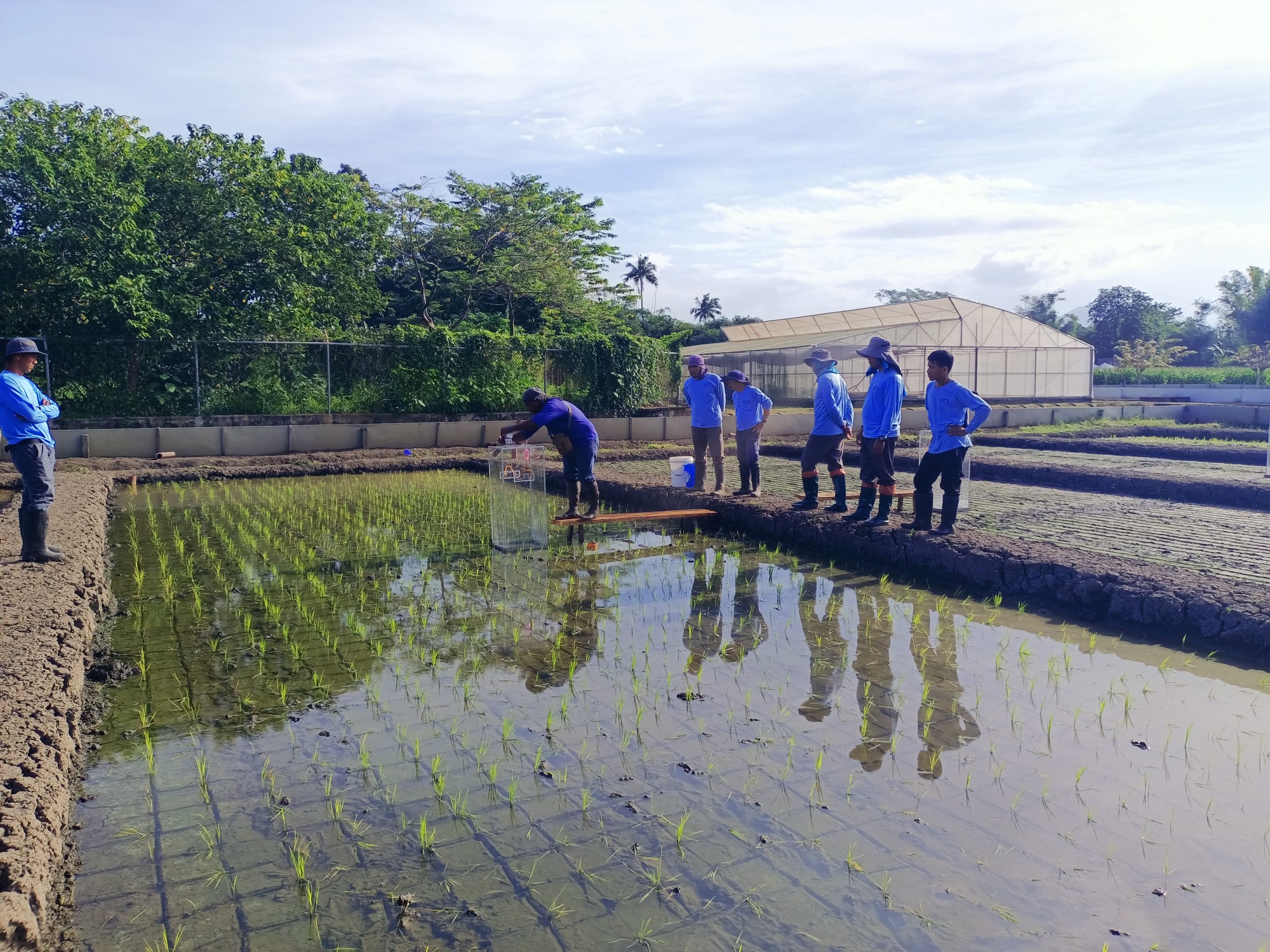BASF and IRRI join forces to reduce carbon footprint of rice

- BASF and IRRI to study multiple options to enhance climate smart farming and improve carbon intensity in rice systems
- Research collaboration for multiple seasons in Laguna, Philippines
Limburgerhof, Germany and Los Baños, Laguna, Philippines. BASF and the International Rice Research Institute (IRRI) have entered into a scientific collaboration to reduce greenhouse gas (GHG) emissions from rice production. Running by the name “OPTIMA Rice” (Optimizing Management for Reduction of GHG in Rice), the collaboration with IRRI supports BASF’s commitment to enable the reduction of CO2e (carbon dioxide equivalent) emissions by 30 percent per ton of crop produced by 2030. The joint effort is planned for multiple rice seasons in the Philippines and will take place in Laguna, where both organizations maintain research centers for rice.
Rice is one of the five most widely produced cereal crops globally and is consumed by about three billion people every day. Although it is grown all over the world, Asia accounts for the largest share of its production. However, because of its geographic expansion and typical manner of wetland cultivation, worldwide paddy rice production contributes about 10 percent of total GHG emissions from the agricultural sector, mainly coming from continuously flooded wetland rice fields. Due to this large carbon footprint, it is estimated that rice production has the greatest potential within agricultural crop production to reduce GHG emissions.

BASF and IRRI therefore plan to explore multiple topics related to climate smart farming in rice. These include direct-seeded rice varieties, nitrogen stabilizers, nutrient and residue management, novel chemistry tailor-made for rice farmers, and water-saving technologies such as alternate wetting and drying management (AWD). In addition, IRRI has begun further improvements to its ecophysiological model ORYZA, to include new computation algorithms for estimating GHG emissions, for application to the project. BASF will use its AgBalance™ tool to estimate the GHG emission intensity and will work with IRRI on field tests of their products to obtain high-quality agronomic and GHG data. Both BASF and IRRI aim to further develop and apply models for improving scientific understanding on climate mitigation and adaptation options for rice in the Philippines and other rice growing areas in Asia. Ultimately, both BASF and IRRI aim to support farmers growing rice in de-carbonizing their production systems.
“To make the big strides that are needed to reduce carbon emissions in farming, we need to evaluate how new technologies and tools can come together for more climate-smart agricultural practices,” said Marko Grozdanovic, Senior Vice President Global Marketing at BASF Agricultural Solutions. “We partner with IRRI to benefit from their expertise in rice because this major crop has a significant carbon savings potential.”
“This collaboration presents immense opportunities for methane and other GHG reductions to create value for farmers and help improve the production of rice in Asia, and the Philippines in particular,” said Bas Bouman, Research Director and Head of IRRI’s Sustainable Impact Department.